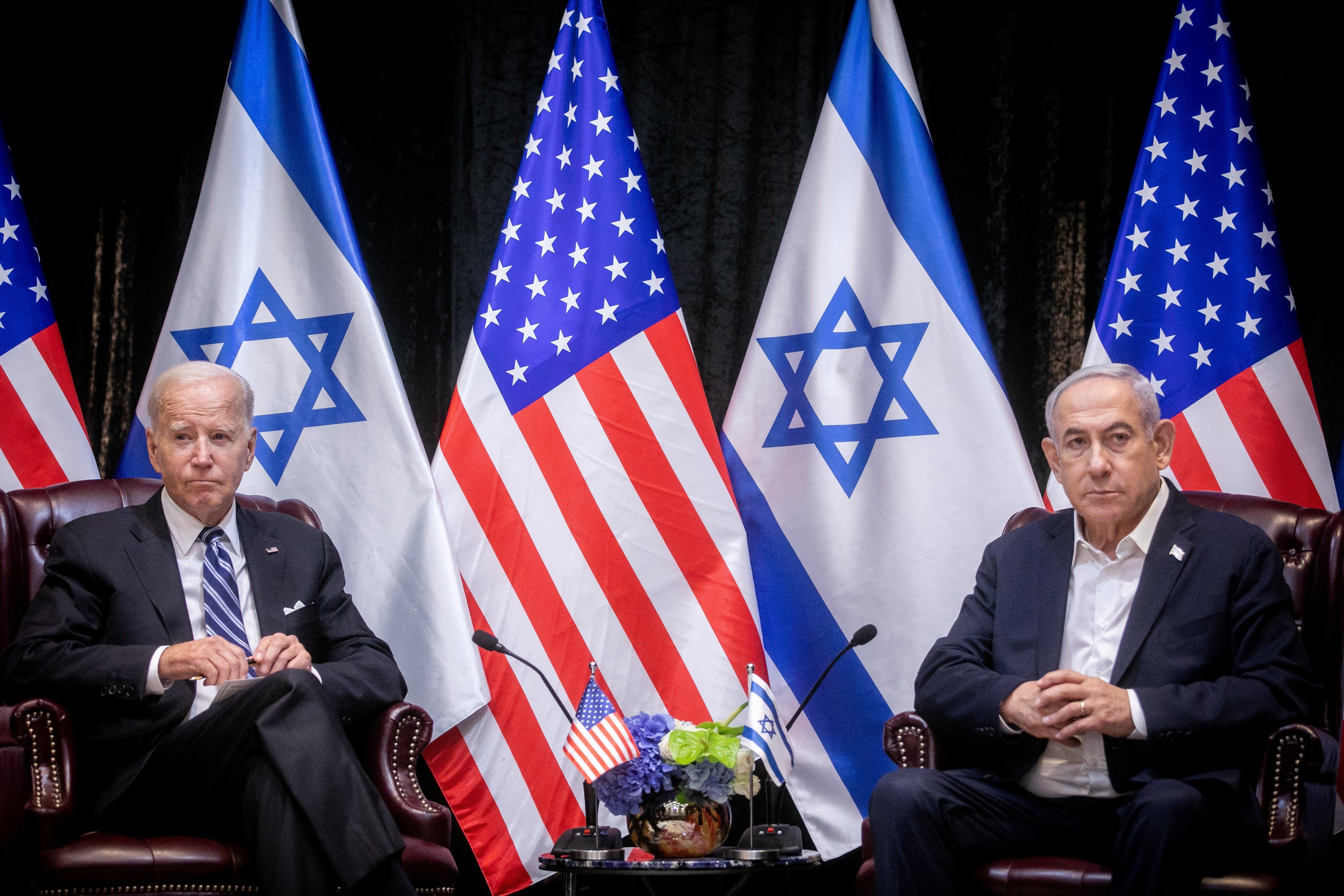US President Joe Biden raised some eyebrows earlier this week when he warned Israeli Prime Minister Benjamin Netanyahu that the IDF’s “indiscriminate” bombing of the Gaza Strip risked isolating Israel internationally. This kind of direct US criticism of Israel’s military approach was notable mainly for how rare it is.
Since the start of the campaign against Hamas in Gaza, the US has stood “rock solid” with Israel, in line with decades of US policy toward the Jewish State. While it has publicly urged Israel to minimize civilian casualties – the locally reported death toll in Gaza exceeds 18,000, more than half of whom are civilians – the White House has also expanded arms exports to Israel and used its UN Security Council veto to shield Netanyahu’s government from international censure.
How does the US support Israel? How long has this been the US policy and why? Here are a few answers to a few questions.
How much money does the US give Israel?
The US currently sends Israel about $3.8 billion of military aid annually, as part of a 10-year deal struck in 2016. Biden has requested an additional $14 billion for Israel as the IDF wages its war against Hamas, but that money is currently tied up in partisan bickering over aid for Ukraine and immigration.
How else does the US support Israel?
Washington also sent several billion dollars in economic aid annually for decades up until 2008 and often used its veto at the UN Security Council to shield Israel from criticism of its occupation of Palestinian territories since the Six-Day War of 1967.
The US has for decades sold weapons to other countries in the region as well, but Washington maintains Israel’s so-called “Qualitative Military Edge” over any conceivable combo of regional opponents. In plain language, that means Israel always gets newer and better military technology from the US than anyone else in the neighborhood.
Has the US always supported Israel so strongly?
No. Although the US has given Israel about $160 billion in total economic and military aid since the country’s founding in 1948 – more than to any other country during that period – more than 95% of that has come since 1970.
What was happening in US-Israel ties before the 1970s?
Although the US supported the UN partition plan for Palestine and was the first country to recognize Israel in 1948, Washington did not give direct help to the Jews during Israel’s subsequent war of independence – most of the young Israeli state’s weapons were British leftovers or came from Czechoslovakia. For much of the next 20 years, Washington engaged little with Israel, focusing instead on courting Arab powers and securing oil supplies as the Cold War intensified.
It wasn’t until the early 1970s – by which time Israel had defeated several Arab powers in war, occupied the West Bank and Gaza, and secretly developed nuclear weapons (against US wishes) – that Washington began to support Israel in earnest.
Whereas a weak Israel had been of little use to the US, a suddenly strong Israel was seen as a valuable check against Soviet-backed Arab-nationalist regimes, as well as against the Gulf Arab monarchies that were suddenly awash with cash after the oil embargo of 1973 caused crude prices to soar.
Peeling Egypt away from the Soviet orbit by brokering peace between Cairo and Israel in the 1970s was a coup of American diplomacy, and the fall of the US-backed monarchy in Iran in 1979 was seen to heighten Israel’s importance to Washington as a powerful regional military ally.
Is support for Israel popular with the American public?
Broadly, yes. A majority of Americans hold a favorable view of Israel, according to a Pew study from 2022, though generational and partisan divides are significant: A majority of younger voters and Democrats tend to hold unfavorable views of Israel, and the generational gap is widening (see our recent Graphic Truth on this).
This has been born out in views of the Gaza conflict, where Democrats and younger voters are more likely to sympathize more with the Palestinians than with Israelis, according to a new Wall Street Journal poll.
